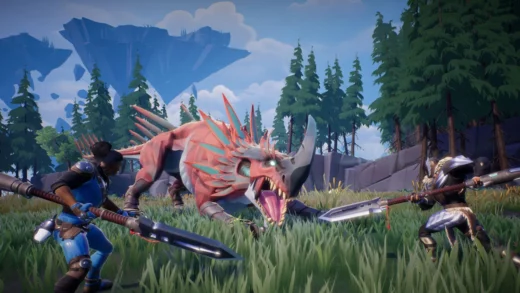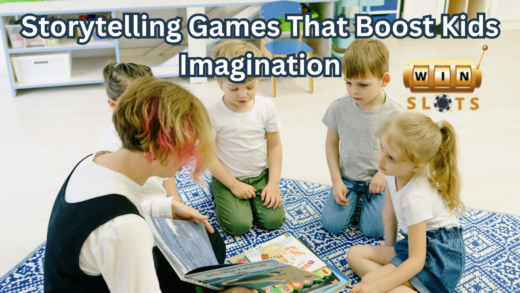When it comes to learning at an early age, play is one of the most powerful tools. For 5-year-olds, puzzle games strike the perfect balance between entertainment and education.
The best puzzle games for 5-year-olds not only provide hours of fun but also develop key cognitive and motor skills such as memory, problem-solving, hand-eye coordination, and logical thinking.
This article explores a thoughtfully curated list of engaging puzzle games tailored specifically for young minds. Whether digital or hands-on, these games are ideal for introducing children to brain games for kids that support early learning in a joyful way.
Why Puzzle Games Are Essential for Early Learning
At age five, children are in a prime developmental stage where their brains are absorbing information rapidly. Puzzle games provide structured play that encourages exploration, experimentation, and critical thinking in a non-stressful environment.
Key benefits of puzzle games include:
- Enhancing spatial awareness
- Strengthening fine motor skills
- Boosting memory and concentration
- Introducing basic math and language concepts
- Encouraging persistence and patience
By integrating educational content with playful interaction, logic puzzles for toddlers can become an essential part of early childhood education.
Best Puzzle Games for 5-Year-Olds
1. Wooden Jigsaw Puzzles
Classic wooden jigsaw puzzles are ideal for helping kids develop shape recognition, fine motor skills, and problem-solving strategies. With themes ranging from animals and vehicles to numbers and alphabets, there’s a puzzle for every interest.
Why Kids Love Them:
- Tactile pieces are easy for little hands to grasp
- Colorful illustrations keep them engaged
- Clear boundaries and defined edges make problem-solving satisfying
Educational Bonus: Many wooden puzzles are designed to teach counting, letters, or map reading in a visually stimulating format.
2. Melissa & Doug See & Spell Puzzle
This interactive game combines spelling with puzzle-solving. Kids match wooden letter tiles to words and corresponding images, making it a perfect blend of literacy and logic.
Skills Developed:
- Letter recognition
- Spelling and vocabulary building
- Visual-matching skills
Parent Tip: Use this game to introduce sight words and start early reading in a low-pressure, game-based environment.
3. ThinkFun Zingo
Zingo is a fast-paced matching game similar to Bingo but with images and words that make it accessible for pre-readers and early readers.
What Makes It Fun:
- Competitive yet cooperative gameplay
- Simple rules that children grasp quickly
- Reinforces image-word associations
Best For: Building early reading confidence while fostering concentration and quick decision-making.
4. Puzzle Apps for Tablets
Digital puzzle apps can also be beneficial when screen time is monitored and used intentionally. Games like Endless Alphabet, Busy Shapes, or Thinkrolls are designed to challenge young minds through interactive logic puzzles, shape matching, and problem-solving.
App-Based Learning Advantages:
- Interactive visuals and audio prompts
- Adaptive difficulty levels
- Promotes independent play and learning
Safety Tip: Always choose age-appropriate, ad-free apps with parental controls.
5. Magnetic Maze Boards
Magnetic maze puzzles involve using a magnetic stylus to guide beads or shapes through a maze. These games help enhance hand-eye coordination and patience while introducing concepts like cause and effect.
Why They’re Effective:
- Promote precise movement and control
- Encourage goal-oriented thinking
- Often themed (e.g., farm animals, traffic flow) to engage imagination
Example: Hape’s magnetic mazes are highly rated and safe for young users.
6. Pattern Blocks and Peg Boards
These open-ended puzzles allow children to recreate patterns or invent their own using colorful blocks or pegs. They offer a fun way to explore geometry, symmetry, and creativity.
Skills Developed:
- Visual-spatial reasoning
- Pattern recognition
- Creativity and independent thinking
Play Tip: Challenge your child to replicate increasingly complex patterns or invent a new one each day.
Recommendation
Brain-Boosting Puzzle Games for 6-Year-Olds: USA 2025 Picks
Top Puzzle Games for Toddlers: Boost Brain Development in USA Kids
Top Memory Games for 2–5 Year Olds to Boost Early Brain Skills
Top 5 Storytelling Games for 4–6 Year Olds: Inspire Young Minds in UK
Top 10 Free Mobile Games for 3-Year-Olds in Canada and Australia
FAQs
Q1: Are puzzle games good for a 5-year-old’s brain development?
A1: Yes! Puzzle games enhance problem-solving skills, memory, attention span, and critical thinking, making them an excellent brain-building activity.
Q2: How long should a 5-year-old play puzzle games each day?
A2: Around 20–30 minutes of puzzle play is a great starting point. The key is consistency, not duration. Rotate different puzzles to keep interest high.
Q3: Can digital puzzle games be as effective as physical ones?
A3: Digital puzzles can be just as beneficial when chosen carefully. They offer interactivity and adaptability, but it’s best to balance screen-based games with hands-on ones.
Q4: What should I look for in a puzzle game for my child?
A4: Choose puzzles with age-appropriate difficulty, engaging themes, and developmental benefits like literacy, motor skills, or logic. Durability and safety are also important.
Q5: How do I know if a puzzle is too easy or too hard?
A5: If your child completes a puzzle effortlessly or quickly loses interest, it may be too easy. If they get frustrated or can’t make progress, it may be too advanced. Aim for a slight challenge to encourage learning.
Conclusion
Finding the best puzzle games for 5-year-olds means identifying those that entertain while enriching their minds. Whether it’s through classic jigsaw puzzles, innovative digital apps, or brain-boosting board games, these activities lay a strong foundation for lifelong learning.
With the right selection of brain games for kids and logic puzzles for toddlers, you can turn playtime into an engaging journey of discovery and development.



